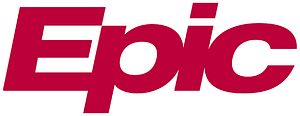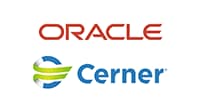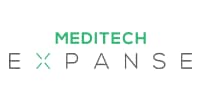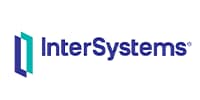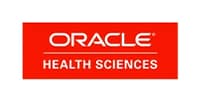Introduction
In the modern healthcare ecosystem, hospitals are under constant pressure to improve patient care, comply with regulatory standards, and maintain operational efficiency. Managing clinical data, billing, scheduling, and patient records across departments requires more than manual coordination—it demands robust Hospital Management Software (HMS).
For enterprise-level hospitals and healthcare networks, a comprehensive HMS provides a single digital backbone that connects clinical, administrative, and financial workflows. However, selecting the right software can be daunting. Each system offers different strengths in usability, integration, scalability, and cost. This review highlights the Top 5 Hospital Management Software for Enterprises, comparing their performance, features, and suitability for various healthcare needs.
Methodology
Our review evaluates each platform based on the following six parameters:
- Ease of Use – How intuitive the platform is for doctors, nurses, and administrative staff.
- Core Features – Modules such as EHR/EMR, patient records, billing, scheduling, pharmacy, and analytics.
- Integration Capabilities – The ability to interface with external systems like labs, imaging centers, and insurance providers.
- Scalability – Performance and reliability across large hospitals or multi-location networks.
- Pricing – Licensing flexibility, affordability, and transparency of cost tiers.
- Customer Feedback – Average review scores, pros, cons, and real-world testimonials from verified users.
These tools were selected for their enterprise adoption, market reputation, and proven scalability across multi-hospital setups.
Top 5 Hospital Management Software for Enterprises
1. Epic Systems
Overview
Epic Systems is one of the most established EHR and hospital management software platforms in the world. Used by many leading hospitals, it integrates clinical workflows, patient engagement, billing, and data analytics under a single architecture—making it the go-to solution for large healthcare networks.
Key Features
- Comprehensive EHR covering inpatient, outpatient, and specialty care
- Patient engagement and self-service portal (MyChart)
- Advanced analytics and reporting (Cogito, Clarity, Caboodle)
- Integrated scheduling and patient flow management
- Interoperability with labs, imaging, and insurance systems
Benchmark Performance
- Ease of Use: Moderate – powerful but requires training
- Data Integration: Excellent – supports robust interoperability standards
- Visualization: Strong – intuitive dashboards and patient-flow insights
- Scalability: Outstanding – proven in large hospital networks
Pricing
- Free Plan: No
- Enterprise: Yes (custom contracts)
- Free Trial: No
Customer Reviews
- Average Rating: ~4.5/5
- Pros: Complete ecosystem, deep analytics, secure architecture
- Cons: High cost, steep learning curve
- Customer Quote: “Epic provides a single source of truth across all departments, but onboarding requires patience and planning.”
2. Cerner (Oracle Health)
Overview
Cerner, now part of Oracle Health, is a leading hospital information system offering clinical, financial, and operational modules for large hospitals. It’s ideal for healthcare organizations needing strong interoperability and revenue-cycle management.
Key Features
- Comprehensive EHR and clinical documentation tools
- Billing, claims, and insurance management
- Population health and analytics dashboards
- Integrated laboratory and imaging workflows
- Cloud scalability with Oracle Health infrastructure
Benchmark Performance
- Ease of Use: Good – interface improvements in recent versions
- Data Integration: Excellent – mature API ecosystem
- Visualization: Strong – unified dashboards and reporting
- Scalability: High – widely used in enterprise deployments
Pricing
- Free Plan: No
- Enterprise: Yes (custom pricing)
- Free Trial: No
Customer Reviews
- Average Rating: ~4.2/5
- Pros: Reliable, flexible, well-integrated modules
- Cons: Costly implementation, occasional workflow complexity
- Customer Quote: “Cerner helps us bridge clinical and administrative data efficiently, though customization can be time-intensive.”
3. MEDITECH Expanse
Overview
MEDITECH Expanse is a long-trusted EHR/HMS platform modernized for web and mobile accessibility. It’s suited for hospitals seeking strong clinical documentation and revenue-cycle integration at moderate cost.
Key Features
- Complete clinical charting and lab/radiology integration
- e-Prescribing and patient portals
- Revenue-cycle and claims processing
- Regulatory compliance (HIPAA, HL7, FHIR support)
- Cloud and on-premise deployment options
Benchmark Performance
- Ease of Use: Moderate – functional but dated interface in parts
- Data Integration: Good – supports major standards
- Visualization: Moderate – functional dashboards
- Scalability: High – used in multi-facility hospital networks
Pricing
- Free Plan: No
- Enterprise: Yes (custom)
- Free Trial: No
Customer Reviews
- Average Rating: ~4.0/5
- Pros: Stable, compliant, strong core features
- Cons: Limited customization, less intuitive UI
- Customer Quote: “A solid and compliant system for documentation, though the interface could be more modern.”
4. InterSystems HealthShare
Overview
InterSystems HealthShare is designed to unify data across multiple healthcare facilities. While not a traditional EHR, it enables interoperability, analytics, and health information exchange (HIE), making it ideal for large hospital networks and integrated delivery systems.
Key Features
- Unified patient record and health information exchange
- Real-time data analytics and insights
- Integration with EHRs, labs, and insurance databases
- Support for HL7, FHIR, and other interoperability standards
- Scalable for multi-hospital data consolidation
Benchmark Performance
- Ease of Use: Moderate – geared more toward IT and data teams
- Data Integration: Excellent – built for interoperability
- Visualization: Good – strong analytics but less clinical UX
- Scalability: Outstanding – supports nationwide data systems
Pricing
- Free Plan: No
- Enterprise: Yes (custom)
- Free Trial: No
Customer Reviews
- Average Rating: ~4.3/5
- Pros: Excellent data aggregation, interoperability leader
- Cons: Technical configuration required, not a full clinical EHR
- Customer Quote: “HealthShare connects our disparate systems seamlessly, but implementation needed deep IT involvement.”
5. Oracle Health ERP (with Cerner integration)
Overview
Oracle Health ERP extends beyond clinical management into enterprise resource planning. It integrates HIS, EHR, financials, supply chain, and HR functions, offering a unified enterprise-grade solution for multi-hospital systems.
Key Features
- Integrated EHR, billing, and administrative modules
- Advanced analytics for finance, inventory, and HR
- Automated workflows for supply chain and procurement
- Multi-facility data consolidation
- AI-driven performance dashboards
Benchmark Performance
- Ease of Use: Moderate – extensive functionality with layered UX
- Data Integration: Excellent – broad ecosystem connectivity
- Visualization: Strong – advanced analytics and KPI tracking
- Scalability: Outstanding – built for enterprise networks
Pricing
- Free Plan: No
- Enterprise: Yes (custom)
- Free Trial: No
Customer Reviews
- Average Rating: ~4.4/5
- Pros: Comprehensive, enterprise-grade integration
- Cons: High setup cost, long implementation
- Customer Quote: “Oracle Health ERP helped unify our administrative and clinical operations, though deployment was resource-intensive.”
Comparative Analysis Table
| Software | Ease of Use | Data Integration | Visualization | Scalability | Starting Price* |
|---|---|---|---|---|---|
| Epic Systems | Moderate-Good | Excellent | Strong | Outstanding | Custom / Enterprise |
| Cerner (Oracle Health) | Good | Excellent | Strong | High | Custom / Enterprise |
| MEDITECH Expanse | Moderate | Good | Moderate | High | Custom / Enterprise |
| InterSystems HealthShare | Moderate | Excellent | Good | Outstanding | Custom / Enterprise |
| Oracle Health ERP | Moderate | Excellent | Strong | Outstanding | Custom / Enterprise |
*Starting price represents custom enterprise contracts that vary by size, modules, and region.
Recommendations for Enterprises
- For large multi-hospital networks seeking full integration: Epic Systems or Oracle Health ERP deliver comprehensive clinical, administrative, and financial workflows. They provide real-time data access across facilities, making them ideal for hospital chains or large teaching institutions.
- For hospitals focusing on interoperability and unified data exchange: InterSystems HealthShare is the best fit. It excels at aggregating and harmonizing data from multiple EHRs, labs, and partner systems — ideal for networks or government-backed healthcare programs.
- For healthcare systems seeking balanced cost and functionality: MEDITECH Expanse provides a strong foundation at moderate pricing. It’s reliable for hospitals needing stable EMR, billing, and compliance without extensive customization overhead.
- For hospitals already in the Oracle ecosystem: Cerner (Oracle Health) or Oracle Health ERP provide seamless integration with existing Oracle tools for finance, supply chain, and analytics, ensuring enterprise-wide cohesion.
Conclusion
Choosing the right Hospital Management Software is a foundational decision that shapes clinical quality, patient satisfaction, and financial health. From this review:
- Epic Systems leads in comprehensive clinical depth and analytics.
- Cerner (Oracle Health) remains a strong, reliable enterprise choice with rich integration.
- MEDITECH Expanse offers solid value and compliance for cost-conscious systems.
- InterSystems HealthShare is unmatched for data exchange and multi-facility interoperability.
- Oracle Health ERP provides end-to-end enterprise control across clinical and administrative domains.
For best results, enterprises should run pilot programs, plan phased rollouts, and invest in staff training to ensure high adoption. The ideal HMS is not just powerful—it’s one that aligns seamlessly with your hospital’s goals and infrastructure.
References
- G2, Capterra, and SoftwareAdvice user reviews
- Vendor websites and official product documentation
- Healthcare IT industry reports and analyst reviews









